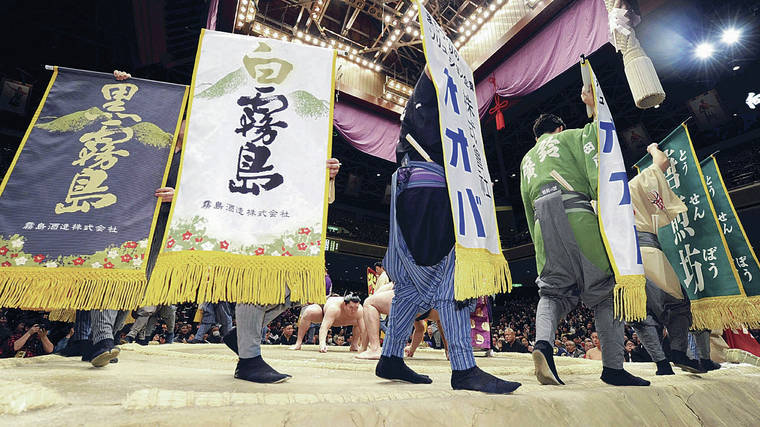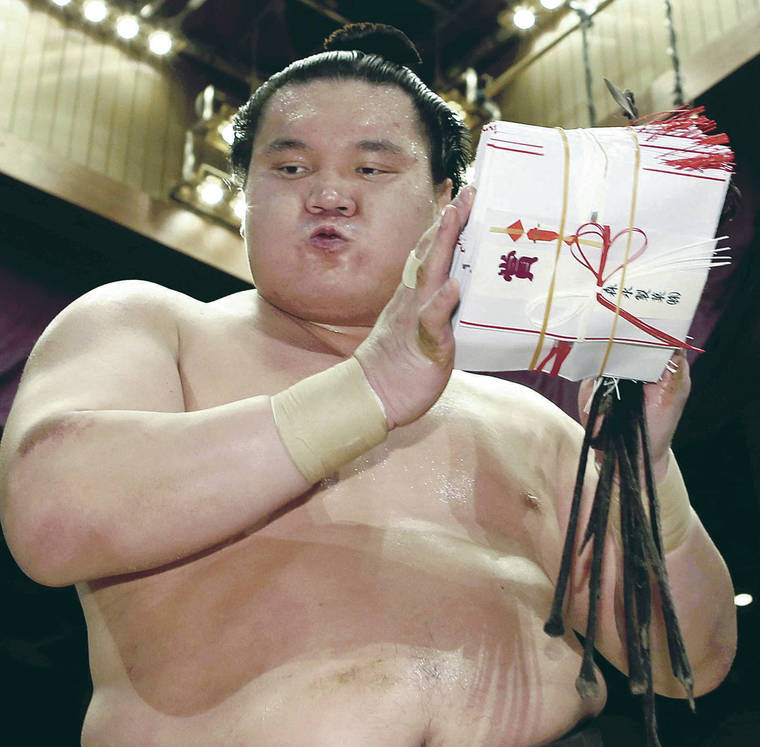Sumo’s eye on the prize: Those cash-stuffed envelopes

JAPAN NEWS-YOMIURI
Prize-money banners bearing names of corporations or organizations are paraded around the sumo ring for each wrestler.

JAPAN NEWS-YOMIURI
Yokozuna Hakuho receives prize money after a winning bout.


TOKYO >> A distinctive feature of professional sumo is the kenshokin, or prize money offered as an incentive for wrestlers who win matches in the uppermost makuuchi division.
With a chopping motion of the hand, the winner of a bout might receive one or more envelopes, each containing 30,000 yen (about $277) in cash, from the referee.
After the final bout of each tournament day, most often fought by a yokozuna wrestler, the bounty offered is close to 50 such envelopes. This means the winner could walk away with about 1.5 million yen (about $13,900) as a special bonus. This grand incentive tends to rouse the fighting spirit, which can make for an exciting contest.
A ritual that precedes each bout shows who has offered prize money. The names of both wrestlers are called out, and then yobidashi callers bearing colorful banners make a circuit of the ring, a common sight for sumo enthusiasts. Each banner bears the name of a corporation or organization that has offered prize money, or the name of a product marketed by the company. Individuals cannot offer prize money.
Each kenshokin prize envelope actually represents 62,000 yen (about $575), but to be among the prize-givers, sponsors must be ready to pay for 15 or more prizes per tournament. A single 15-day tournament costs at least 930,000 yen (about $8,600).
Out of each 62,000 yen prize, the Japan Sumo Association takes 26,700 yen as its charge, excluding commissions, leaving the winner 30,000 yen in cash on the spot.
Don't miss out on what's happening!
Stay in touch with breaking news, as it happens, conveniently in your email inbox. It's FREE!
There was a time when winning wrestlers were paid the whole amount of the prize money. Some spent all the money in one night and were unable to pay taxes. Today, the association keeps nearly half of the prize to make sure wrestlers are accountable for taxes.
Enho, a popular wrestler of small stature who has recently been promoted to the makuuchi division, won his first prize money on the first day of the last tournament, which coincided with Mother’s Day. He gave the money to his mother.



